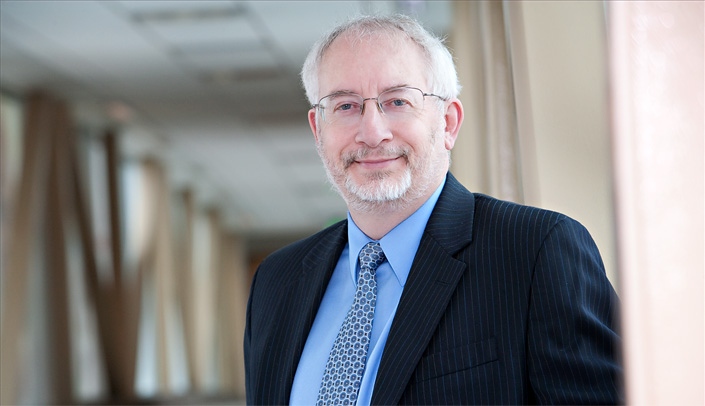June is a time of transition for our residency and fellowship programs, where we congratulate, those completing their training and welcome the incoming group of physicians beginning it. Fortunately, in contrast to last year, we can celebrate these events in person — with some adjustments to keep all safe in recognition that the pandemic is not over.
More than ever this year, we need to thank those who are graduating, as well as those who will be with us for additional time, for all that they do in taking care of the patients who come to us for care. This last 15 months, these committed professionals played a critical role in the response to the COVID-19 pandemic. Through their dedication and self-sacrifice, lives were saved and families and patients comforted. To each of you, I say thank you.
The practice of medicine has been changed forever by the pandemic. Those joining us as new residents and fellows will find their training experiences significantly different from those who preceded them only two years ago. Given the amazing reluctance of so many to receive a safe and highly effective vaccine and the continued lack of vaccine availability in many countries, COVID-19 is not going away soon. Thus, treating and preventing that disease, its complications and what it evolves to become over time will be part of the practice of medicine for the foreseeable future. In turn, COVID-19 will become intimately incorporated into and impact the experiences of each of our training programs. Lessons related to the importance and principals of public health preparedness cannot be forgotten.
Despite the tragedy of the pandemic, new opportunities and approaches that enhance the practice of medicine have occurred, as the urgency of the situation promoted creative thinking and overcame the natural reluctance in medicine for rapid change. These changes also must lead to new approaches to undergraduate and graduate medical education, as well as the transition from one to the other.
Telemedicine became the mainstay of many of our ambulatory clinic visits last year. The advantages of such visit modalities for some types of care delivery have become apparent, and telemedicine will not be going away – the demand from patients who have had positive experience with such visits will not allow it to do so. Providing care via telemedicine is a unique skill set. Medical students, residents and fellows will need and demand that skill be part of their training. Thus, it will become part of the standard curriculum of many disciplines.
We have now shown that future medical students and residents can be selected for medical school admission and go through the residency match using virtual processes both to interview and learn about programs. This process decreased travel-related costs for applicants and programs that leveled the playing field for students with less financial means and/or time to interview at multiple locations. Whether the time and cost savings associated with virtual interviews offset the decrease in personal aspects of the in-person events, including added information — about programs, the people in them, the culture and the geographic site in which they are located – still is debatable. However, now that the genie is out of the bottle, it will be hard to put it back in. I predict that many specialties and schools will be adopting some type of hybrid approach to filling their classes/programs in the future, using both in-person and virtual approaches.
In closing, congratulations to all of our graduating residents/fellows. For a number, I also welcome you to our faculty. For those leaving UNMC, we wish you great success in your careers. To the newly arriving residents/fellows, welcome to UNMC. We look forward to having you with us and the unique contributions that each of you will bring to our programs and patients.
Bradley Britigan, MD
Dean
UNMC College of Medicine
